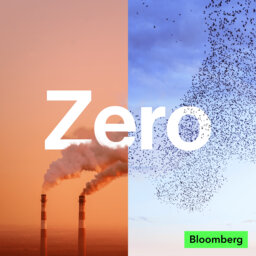Does it matter if the world breaches 1.5C for a single year?
This week a new report was released by the World Meteorological Organization (WMO) that says we are likely to exceed 1.5C of warming for a single year at some point in the next five years. It’s a big deal for many reasons, especially because limiting global warming to within 1.5C of pre-industrial temperatures is a key goal of the Paris Agreement.
In this bonus episode of Zero, Akshat Rathi and Oscar Boyd talk about what the WMO report says and why it matters.
Read more about the WMO report:
- Breaching 1.5C threshold temporarily in next five years ‘more likely than not’
- Climate pledges reach threshold to keep warming below 2C
- Read a transcript of this episode
Zero is a production of Bloomberg Green. Our producer is Oscar Boyd and our senior producer is Christine Driscoll. Special thanks to Zahra Hirji, Olivia Rudgard and Kira Bindrim. Email us at zeropod@bloomberg.net. For more coverage of climate change and solutions, visit https://www.bloomberg.com/green.
In 1 playlist(s)
Zero
Zero is about the tactics and technologies taking us to a world of zero emissions. Each week Bloombe…Social links
Follow podcast
Recent clips

Did we get climate finance all wrong?
42:27

America the bully becomes the supreme petrostate
39:32

Abundance or adequacy? The search for better climate futures
39:54
 Zero
Zero